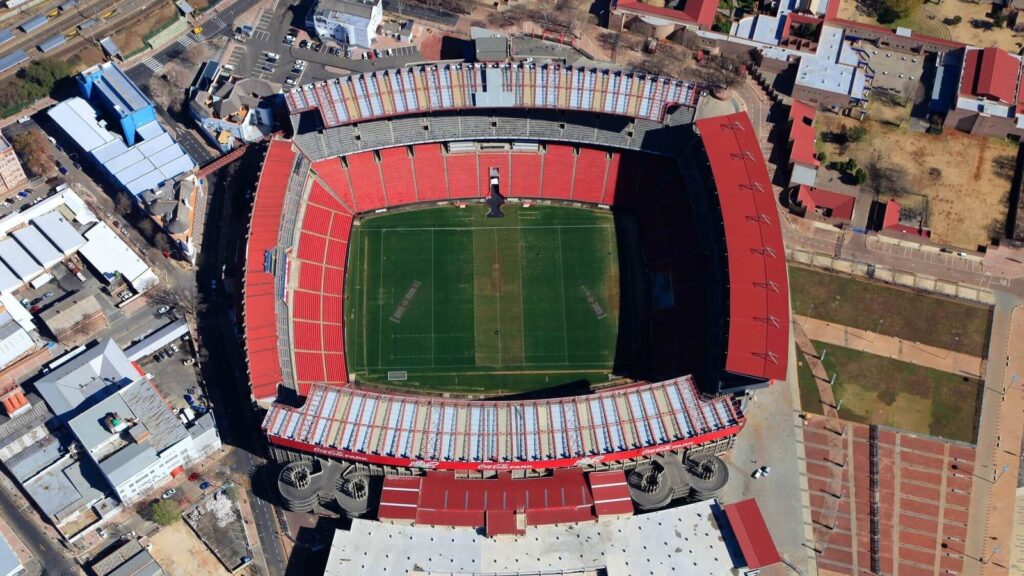Africa has some of the most legendary football stadiums with their electric atmosphere, ardent fans and rich history. These stadiums have been the hosts of major continental competitions such as the Africa Cup of Nations (AFCON) and have witnessed historic football events. From different corners of the continent, each stadium has its own story to tell about football passion, tradition and pride.
In our series of articles here on Sofascore News, we already covered most iconic stadiums in UK, Europe, South America and beyond.
But this is a close-up examination of some of the most iconic football stadiums in Africa and why they are so unique.
Moses Mabhida Stadium (South Africa)
Moses Mabhida Stadium in Durban, South Africa, is perhaps the most visually appealing stadium in the world. Completed in 2009, it has a capacity of 56,000 and was one of the top stadiums for the 2010 FIFA World Cup. The stadium also has a distinctive arch, where visitors can ride a cable car for a panoramic view of the city.
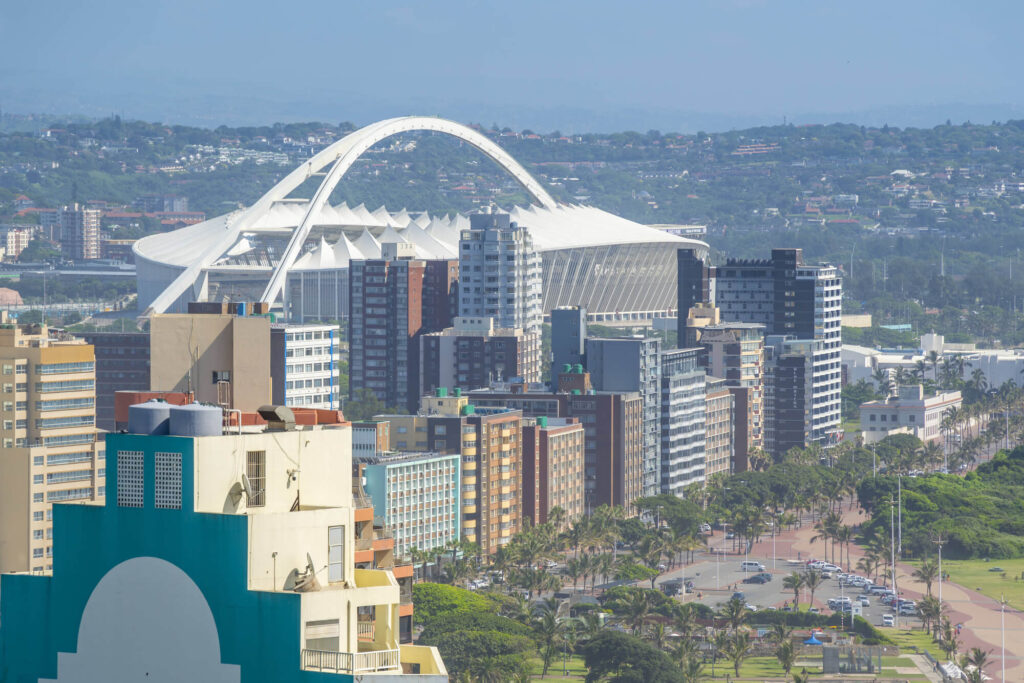
It’s home to the local club AmaZulu FC. Hosting many international games, the stadium is renowned for its electric atmosphere. It has been utilized for football, concerts, and other mass events, and as such, it is a cultural icon. The South African fans’ passion generates an exciting vibe, making it one of Africa’s most famous stadiums.
FNB Stadium (South Africa)
Previously Soccer City, Johannesburg’s FNB Stadium is one of Africa’s most famous stadiums. With a capacity of 94,736, it was the primary stadium for the 2010 FIFA World Cup. It also hosted the final between Spain and the Netherlands. Opened in 1989, it has since been renovated on a large scale, making it one of the best-stocked stadiums in Africa. It also hosts top games for South Africa’s national team and club team Kaizer Chiefs, which is among the most successful teams in the nation.
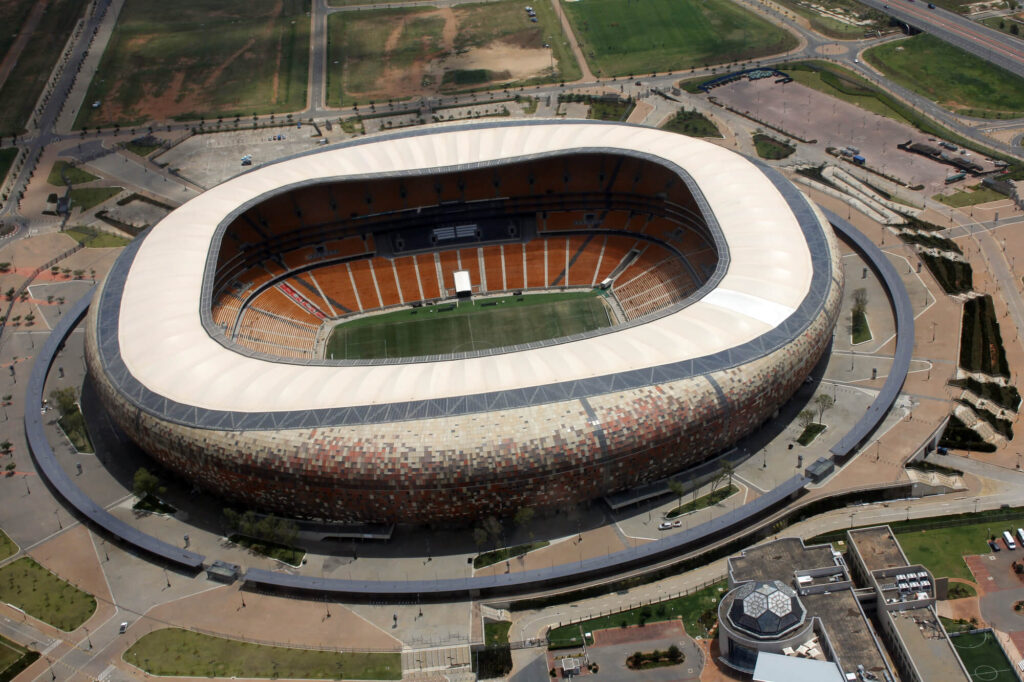
It was in FNB Stadium that Nelson Mandela made his first address upon being released from prison in 1990. The stadium’s iconic shape contributes to its status as a symbol, with its resemblance to a classic African calabash. The deafening roar of support from South African spectators makes it one of the most lively football stadiums on the continent.
Moshood Abiola National Stadium (Nigeria)
Situated in Abuja, Nigeria, the Moshood Abiola National Stadium is one of the major football stadiums in West Africa. It was opened in 2003 and has a seating capacity of 60,491. The stadium was originally constructed to stage the 8th All-Africa Games. The stadium has since then become a vital home for the Super Eagles, the national team of Nigeria. World Cup qualifiers, AFCON games and high-profile friendlies have been hosted here.
Built to FIFA and Olympic standards, the stadium ranks among the top multi-purpose sport stadiums in Africa. In recent years, despite the maintenance problems it has had, attempts have been made to revive it back to its status. Nigerian soccer supporters bring a unique energy into this ground that is unmatched elsewhere. and their colorful drumming, singing, and dancing provide an exciting matchday atmosphere.
Stade Leopold Senghor (Senegal)
Located in Dakar, Senegal, this stadium has been a Senegalese football fortress since its inauguration in 1985. The stadium is named after Senegal’s first President, Léopold Sédar Senghor, and has a seating capacity of 60,000. It is the home of Senegal’s national team, the Lions of Teranga, and is renowned for the tremendous support from home fans. The stadium has hosted several AFCON games, World Cup qualifying matches and club-level matches.
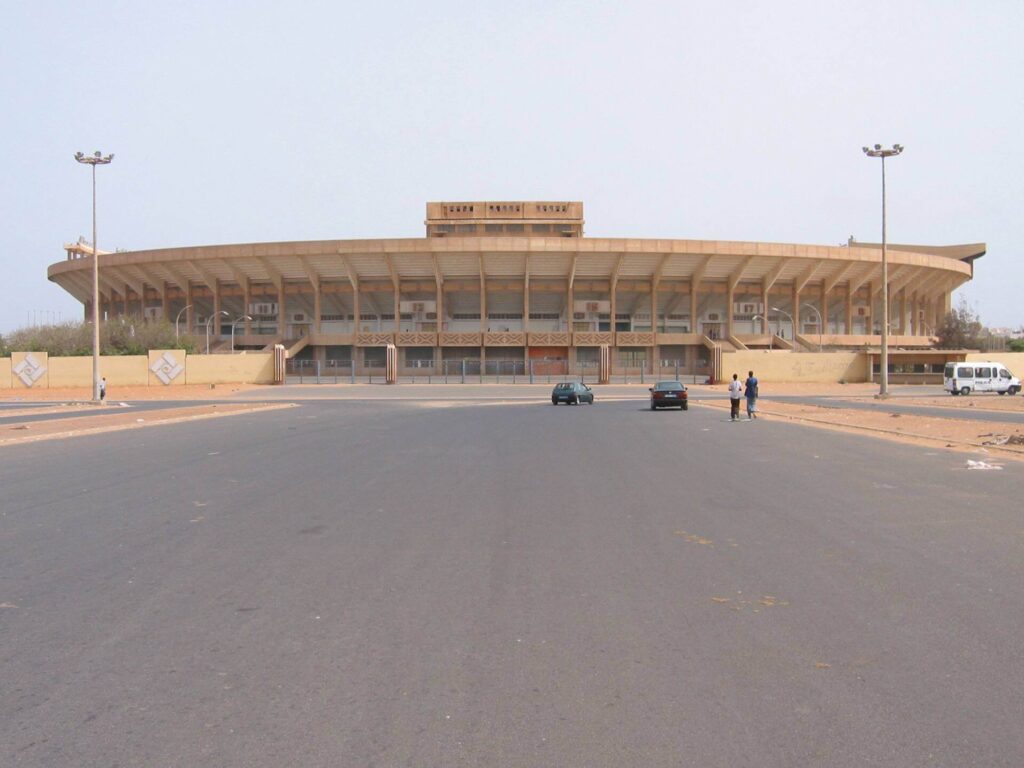
Senegalese fans are the most vibrant in Africa, occupying the stadium with shouts, dances, and drum beats that produce a fearsome environment for opposition teams. Several legendary players such as Sadio Mané and El Hadji Diouf have taken center stage in the stadium over the years. Although proposals for a new national stadium are underway, Stade Leopold Senghor is still a source of Senegalese football pride.
Ellis Park Stadium (South Africa)
Ellis Park Stadium, in Johannesburg, is South Africa’s most storied football stadium. It was opened in 1928 and has a capacity of 62,567 and is better recognized as a rugby stadium, but it has also played an important part in football history. It was a host of matches in the 2010 FIFA World Cup as well as home for Orlando Pirates, the largest football club in South Africa.
Ellis Park has seen some of South Africa’s most legendary football action, including massive Soweto Derby matches and international matches. The passionate supporters, especially at local derbies, bring a personal ferocity to the stadium. It has seen numerous AFCON matches over the years and remains one of the most legendary sporting stadiums in the country.
Cairo International Stadium (Egypt)
Cairo International is Egypt’s football fortress. Its 75,000 capacity has hosted many AFCON finals and is Egypt’s national team’s home stadium. The stadium was opened in 1960 and played a central role in Egyptian football history. It has witnessed many of Egypt’s greatest sporting moments. It has witnessed legendary sides like Al Ahly and Zamalek battle each other on the continental scene, and many World Cup qualifying games.
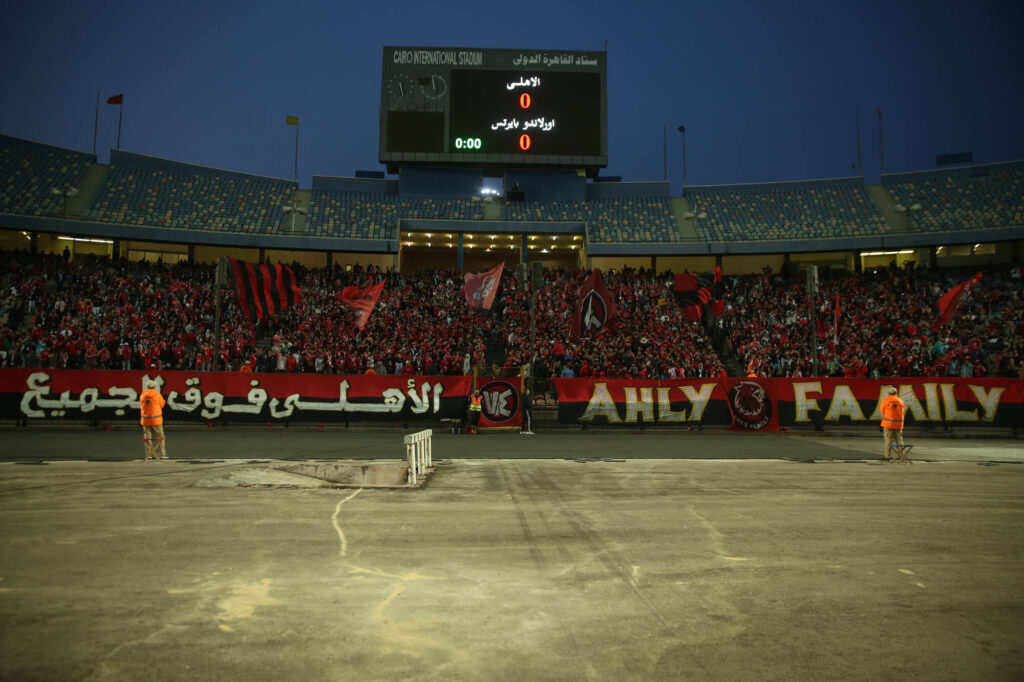
The passion by the fans cannot be matched, especially where big matches are concerned. Their chanting, singing, and choreographed actions turn the stadium into a fear factor for rival teams. Cairo International Stadium aside from football has also been used for significant national events, concerts, and ceremonies. Renovation over the years has improved its facilities to ensure it remains one of the class African football stadiums.
Borg El Arab Stadium (Egypt)
Borg El Arab Stadium, in Alexandria, is Egypt’s biggest stadium and one of Africa’s biggest, seating 86,000. The stadium, which was opened in 2007, was conceived as part of Egypt’s hosting bid for the 2010 FIFA World Cup and has since become one of the main venues for international matches. It is mainly utilized by the Egyptian national side and local clubs for high-profile fixtures.
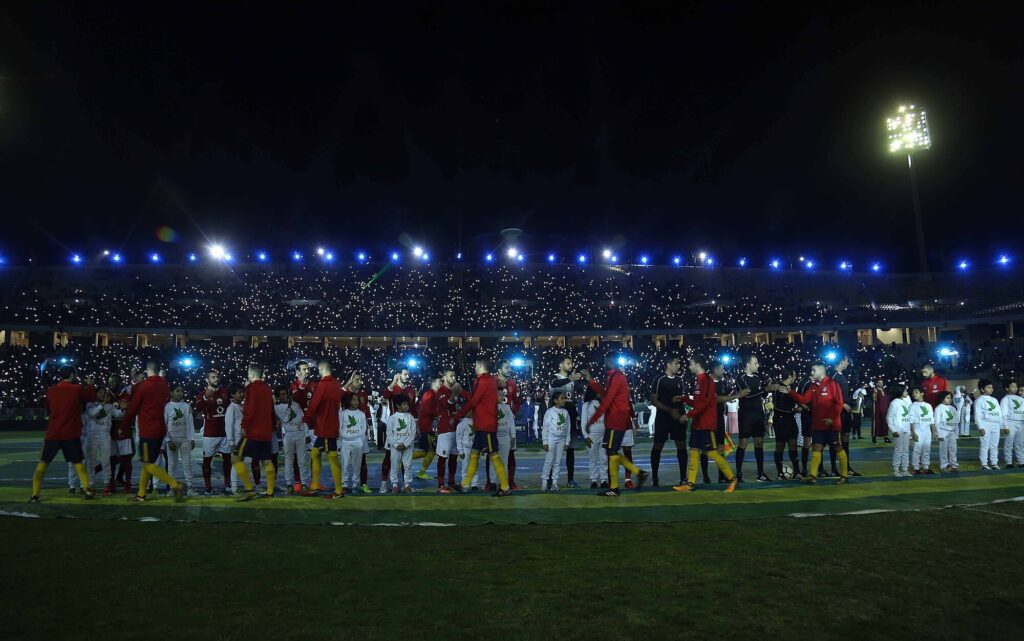
Its advanced facilities and world-class pitch qualify it as one of the top stadiums in North Africa. Egyptian football supporters are renowned for their intense passion, and the stadium often experiences spectacular support during key matches. Borg El Arab has hosted AFCON qualifiers, club tournaments and World Cup qualifying matches. Its capacity and advanced facilities qualify it as a top stadium on the continent.
The Spirit of African Football
Africa’s football stadiums have been the venue for some of the continent’s most memorable moments in football. They are a platform for Africa’s finest players and teams to showcase their talents. These stadiums are still at the center of the sport’s growth, an indication of the rich football culture of Africa. Most of these facilities have been upgraded to international standards, keeping them at the center of African football. These grounds also serve as cultural and social centers where people come to express their passion for the game. With more investments flowing into African football facilities, these legendary stadiums will remain iconic landmarks for years to come.
